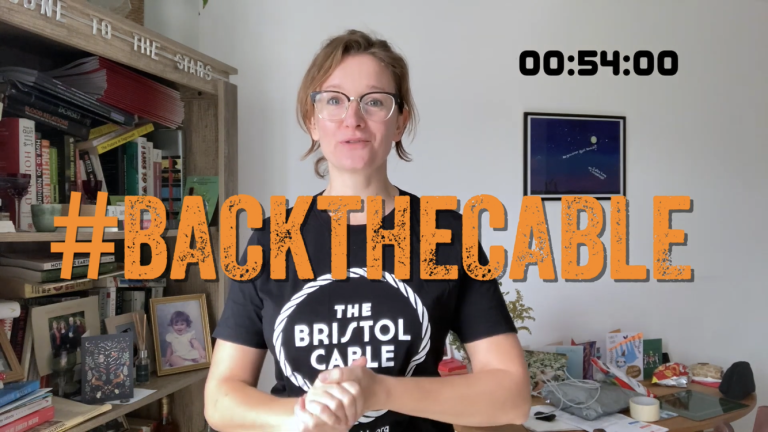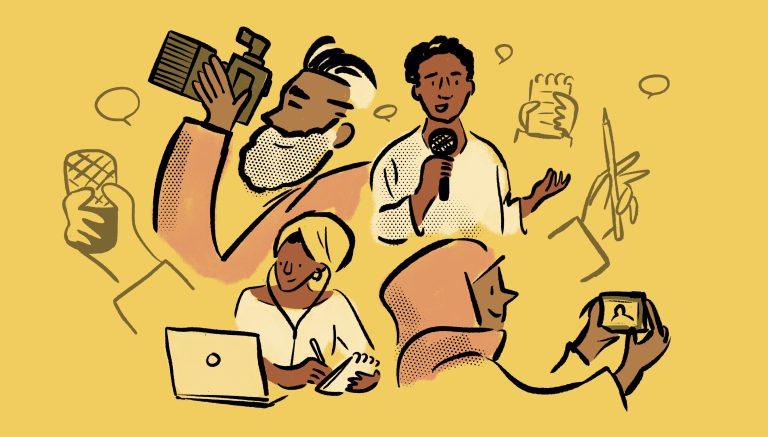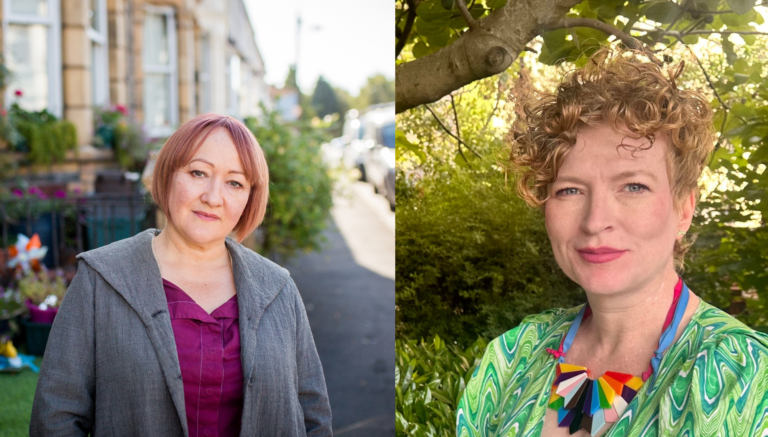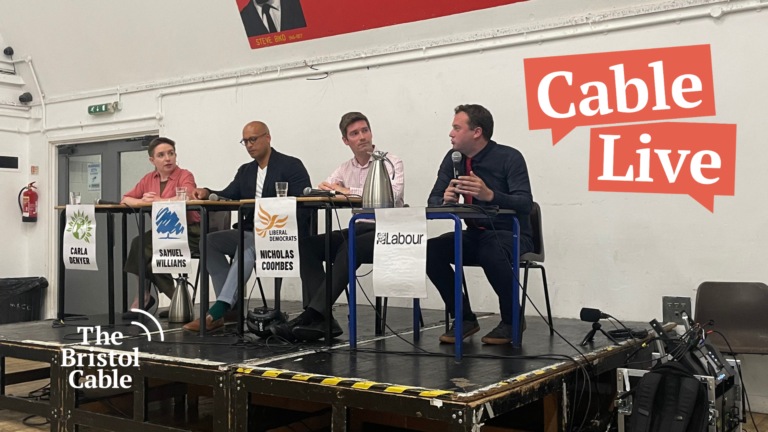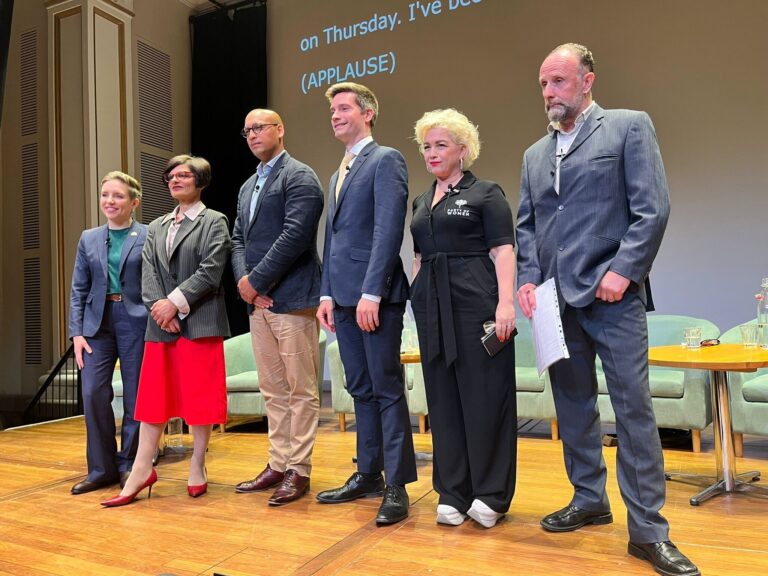‘People want to understand their world’: 5 lessons from 2024’s big journalism study
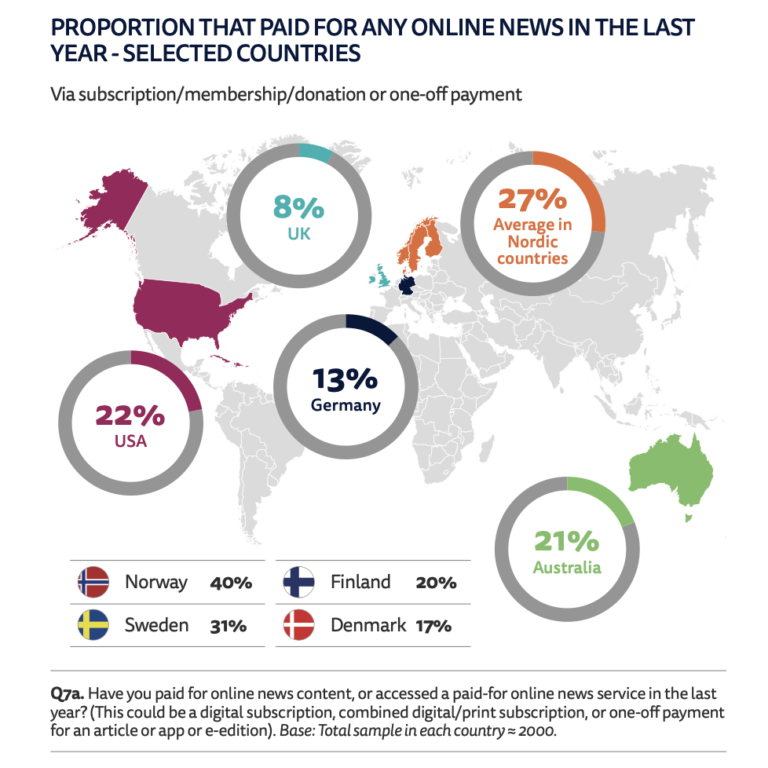
A few weeks ago, Enders, the industry leaders on media analysis, shared research that said we “have five years to save UK local journalism”. What a headline!
Before you allow both the doom *and* gloom to set in, organisations like the Cable are working on how to sustain local news, not only by organising people to become members (we’ve increased our income by more than 25% this year), but also understanding how to adapt to the changing industry and fight for the survival of quality local journalism.
One of the many ways we do this is reading the Reuters Institute for Journalism (RISJ)’s annual Digital News Report – and 2024’s has just come out. Across the world, 95,000 people from 47 countries are surveyed every year on their views and engagement with journalism.
First, it shows one overarching thing we all already know: we need a change in news culture if we want to improve the fortunes of journalism, a crucial pillar of democracy, particularly at the local level.
This cultural change needs to come from both sides: we need both higher-quality (in other words not clickbait, sensational) journalism, and a willingness from the public to pay for that quality journalism and refuse to take it for granted. The Bristol Cable has been banging this drum for our entire 10 years in existence. We hope to do so for another decade, with your support!
Here at Cable HQ, we’re pretty nerdy about the inner workings of journalism – around the world, across the UK, and within Bristol. While we know it’s not most people’s special interest, it is deeply relevant to us all.
Knowledge is power, after all, and whether or not journalism is functioning is relevant in particular right now, when the industry is facing a critical juncture, more people are voting across the world than ever before, and we urgently need more people power. We can’t organise and make change without reliable information.
You can help us do this by becoming a member before the deadline for our 2024 membership growth campaign: Keep the Lights On!
Here is a breakdown of this year’s findings:
1. The UK has the lowest proportion of people paying for news
Only 8% of Brits said they pay for news, the lowest number out of any of the countries surveyed.
The average across 20 countries surveyed was 17%. Norway (40%) and Sweden (31%) are currently highest, and Japan (9%) and the UK (8%) lowest.
There are many factors at play here, including the cost of living crisis and negative attitudes to papers in the UK due to practices such as phone hacking, but the UK has consistently ranked low on this scale.
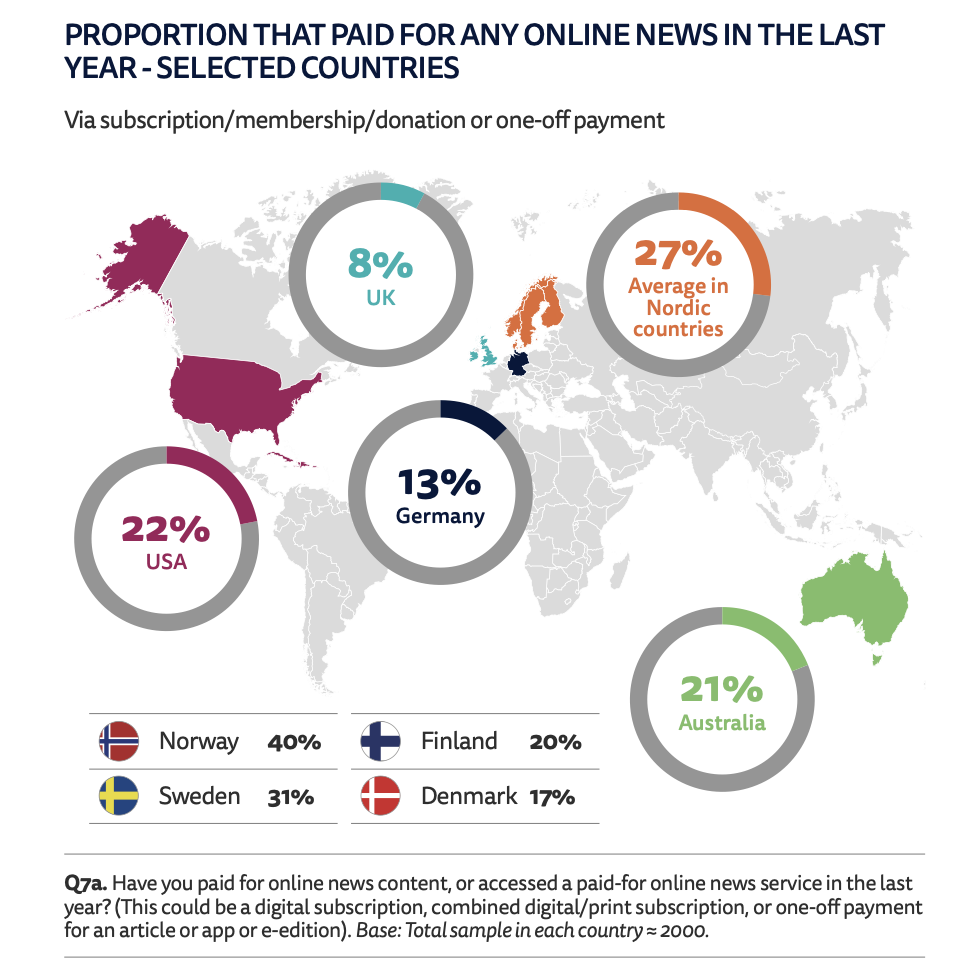
2. Worry about misinformation, and AI, is widespread
Understandably, people are concerned about misinformation. This has been compounded by the addition of AI into the mix over the last couple of years.
Suspicion about ‘news’ and ‘the media’ in general is widespread, and is worse when people factor in their concerns about a rise in AI ‘journalism’ that isn’t fact checked by humans.
We share these concerns, but specifically about how the situation might make journalism’s funding and job-cutting crisis worse. For more information, we wrote about this very issue last summer, and spoke to the BBC’s Media Show about it.
3. All ages are getting more news from shortform online video, and influencers
More and more people, of all ages, are getting their news increasingly from shortform video (sometimes called ‘vertical video’, since it tends to be shot for consumption on smartphone screens). Platforms such as TikTok, YouTube (Shorts) and Instagram (Reels) have rapidly outpaced people buying print newspapers, reading news websites directly or watching the news on television.
Shortform video is convenient, and follows the trends of increased phone use as a wider phenomenon. But this means news consumption is merged with entertainment and any other scrolling one might do – and a blurring of the line between unchecked influencer and professional (ideally well-edited and fact-checked) journalist.
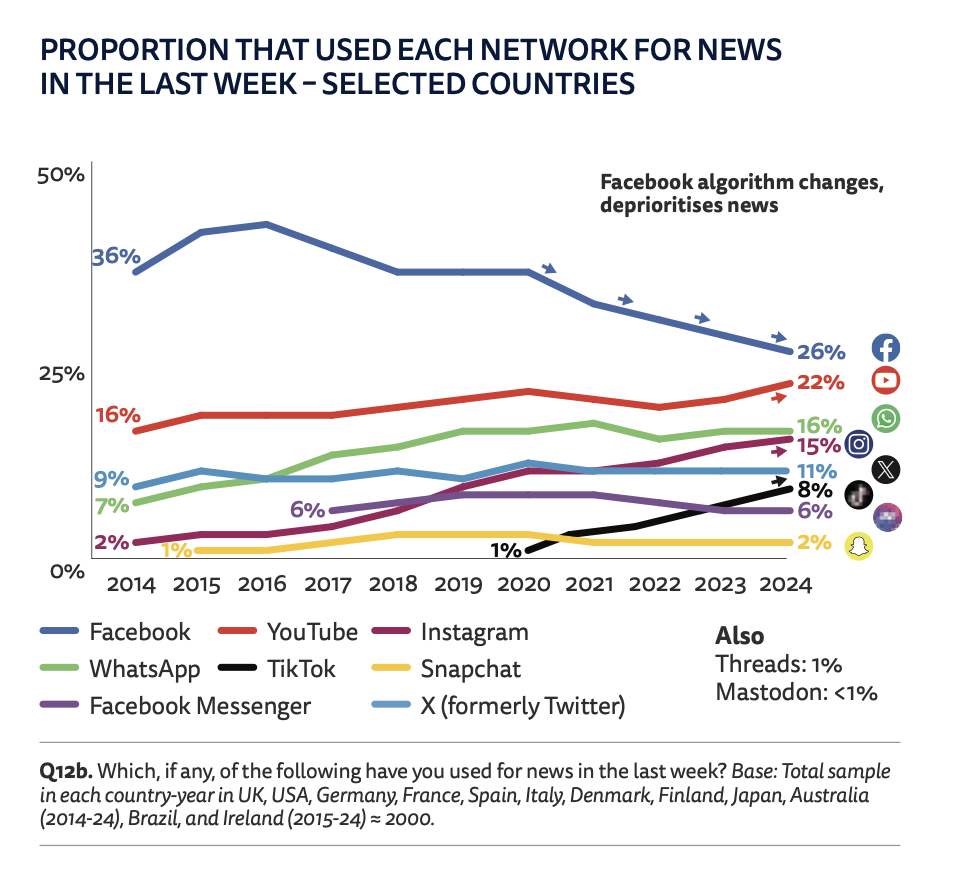
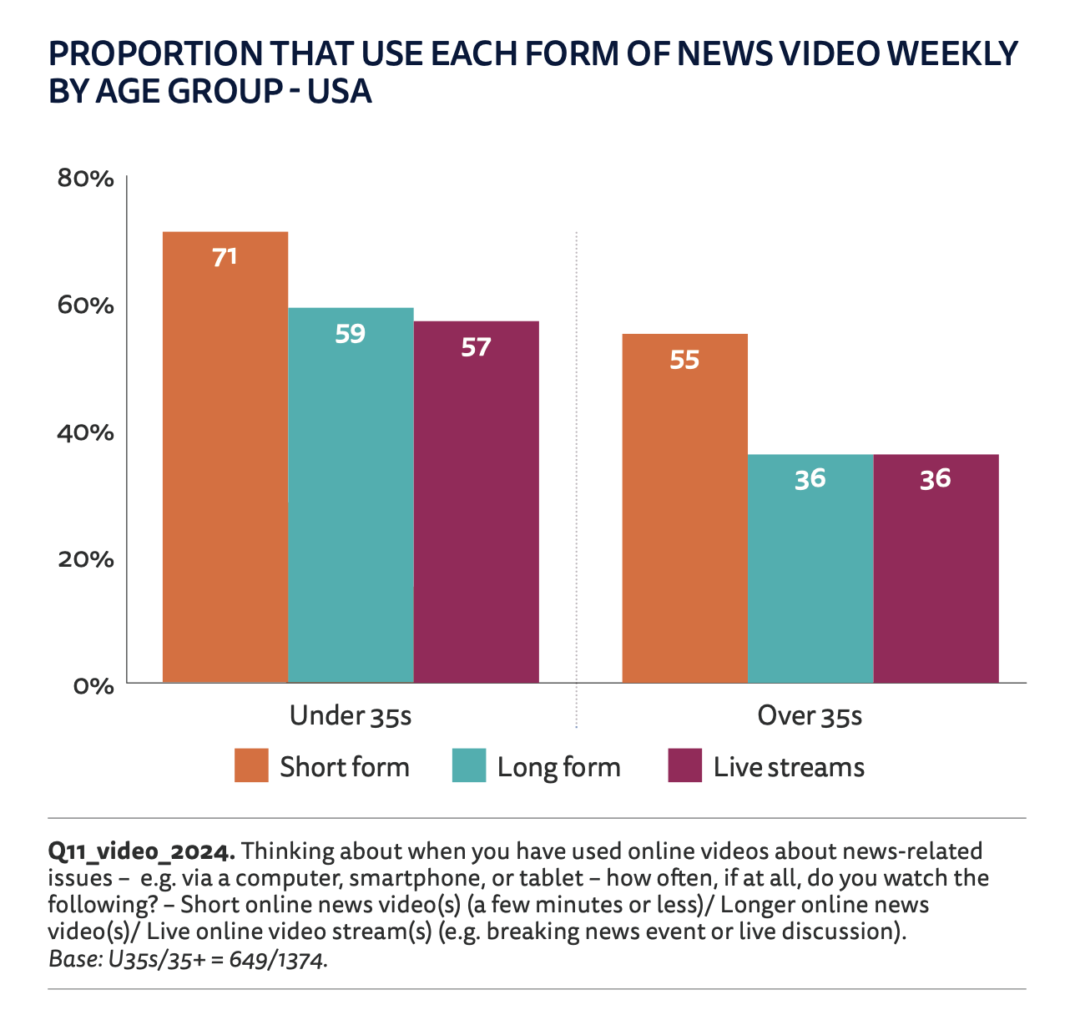
4. More people are news avoiders than ever before
It’s not surprising, in our age of ongoing conflict, the rise of the far-right, economic woe and climate crisis, that news avoidance has risen in 2024.
One in four (39%) of us (on average, across all countries surveyed) ‘often or sometimes’ avoid news – an increase of 3% since last year. In an effort to counteract this The Cable tries to balance our coverage of corruption and holding power to account – which you might call ‘bad news’ – with community successes and solutions journalism.
We also have our quarterly print, and a ‘slow news’ approach. This is because while we understand that we might all be addicted to our phones, we need to move away from the barrage of information, provide context, and highlight news that is the most important, not just the most gripping in the moment.
5. Still, people really want to understand the world around them
That leads us onto our last point. Despite many of us avoiding news, people also report that they really do want to understand the world around them. The majority of people really want to be updated and educated, with depth and perspective.
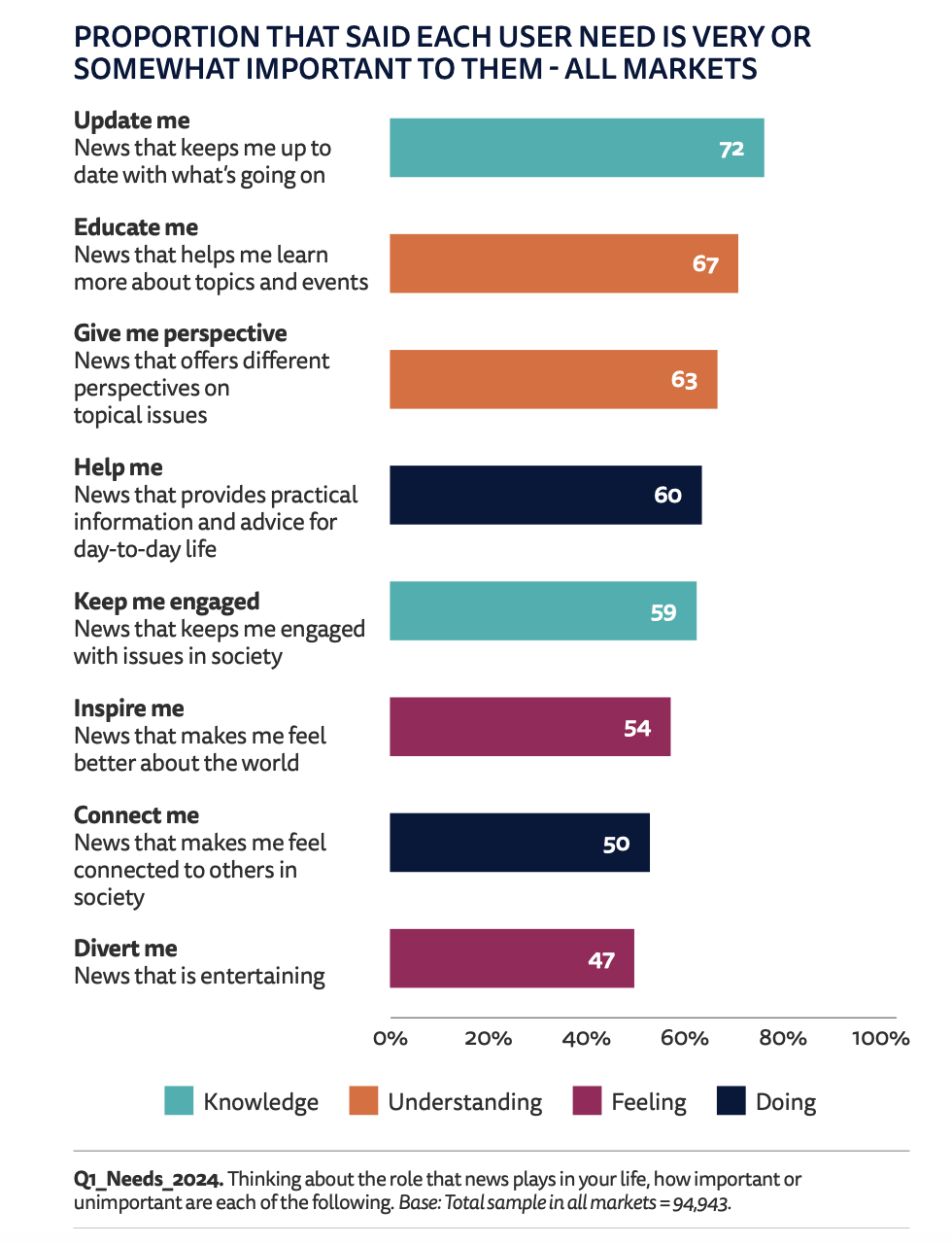
This helps us to understand that all is not lost. It’s not that people don’t care, or that people *only* want to be entertained and ignore the woes of the world, it’s that the news industry is still in need of adaptation.
Slow news, supporting independent news, and wider reform of the industry are all things that need to change, and the Cable is proud to be at the forefront of this movement, alongside our diverse and incredibly knowledgable colleagues around the world.
If you want to understand more about Bristol, and the news industry, please support us so we can carry on doing what we do. (The best way is to take out an annual membership or Patron membership ahead of our bonus grant deadline on Aug 31, 2024!)




